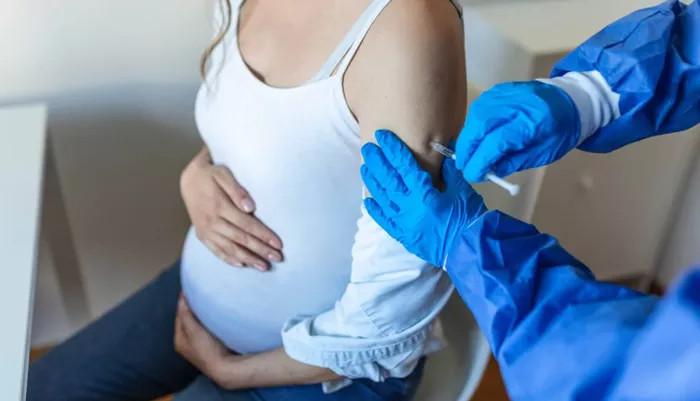Starting September 1, the NHS will offer the respiratory syncytial virus (RSV) vaccine to pregnant women and older adults across England. This new initiative marks the first time the vaccine will be administered on a routine basis.
Pregnant women will receive the vaccine starting at 28 weeks of pregnancy, while adults who turn 75 this year will be eligible for the vaccine. Those aged 75 to 79 will have the opportunity to catch up on the vaccine to ensure they are protected.
Studies indicate that vaccinating pregnant women significantly lowers the risk of severe lung infections in their babies during the first six months of life by approximately 70%. The RSV vaccine has received approval from UK medicines regulators based on recommendations from the Joint Committee on Vaccination and Immunisation (JCVI).
RSV can lead to bronchiolitis, a serious lung infection that makes it difficult for babies to breathe and feed. Each year, around 20,000 babies are hospitalized in England due to RSV, which is a major contributor to winter pressures on children’s hospitals and paediatric intensive care units.
Recent data shows an increase in RSV cases among children, with an average of 146 young children hospitalized daily during the winter of 2023, an 11% rise compared to previous winters. A study published in The Lancet suggests that a vaccination program could prevent 5,000 hospitalizations and 15,000 emergency department visits for infants. It also estimates that the first season of the vaccination program for older adults could prevent about 2,500 hospital admissions, 15,000 GP visits, and 60,000 RSV-related illnesses.
Mina Patel, 36, from Kent, shared her experience with RSV. Her daughter, born prematurely in 2017, had suspected RSV when hospitalized for pneumonia. Patel believes that the national vaccine supply will greatly benefit mothers and their babies, emphasizing that RSV and other lung infections can be especially dangerous for vulnerable infants.
Steve Russell, NHS national director for vaccinations and screening, said: “After extensive preparation, we are excited to offer the RSV vaccine to pregnant women and at-risk older adults for the first time. This effort will help protect vulnerable individuals and ease NHS pressures as winter approaches. Vaccination is crucial for safeguarding oneself and others, especially as RSV cases peak in winter. Eligible individuals should get vaccinated as soon as possible this autumn.”
Prof. Jenny Harries, chief executive of the UK Health Security Agency, stated: “This new vaccine presents a significant opportunity to prevent severe illness from RSV, protecting lives and reducing winter pressures on the NHS. The UKHSA has provided essential scientific evidence supporting the benefits of a national RSV vaccination program, making this rollout a major step forward for public health.”
Kate Brintworth, chief midwifery officer for NHS England, added: “Vaccination is key to protecting babies, women, and families while managing increased NHS demands during winter. I am grateful to everyone involved in making this groundbreaking vaccine rollout possible. With nearly 30 years as a midwife, I appreciate the efforts to integrate vaccination and maternity services, ensuring that women can easily access the RSV vaccine when eligible.”


